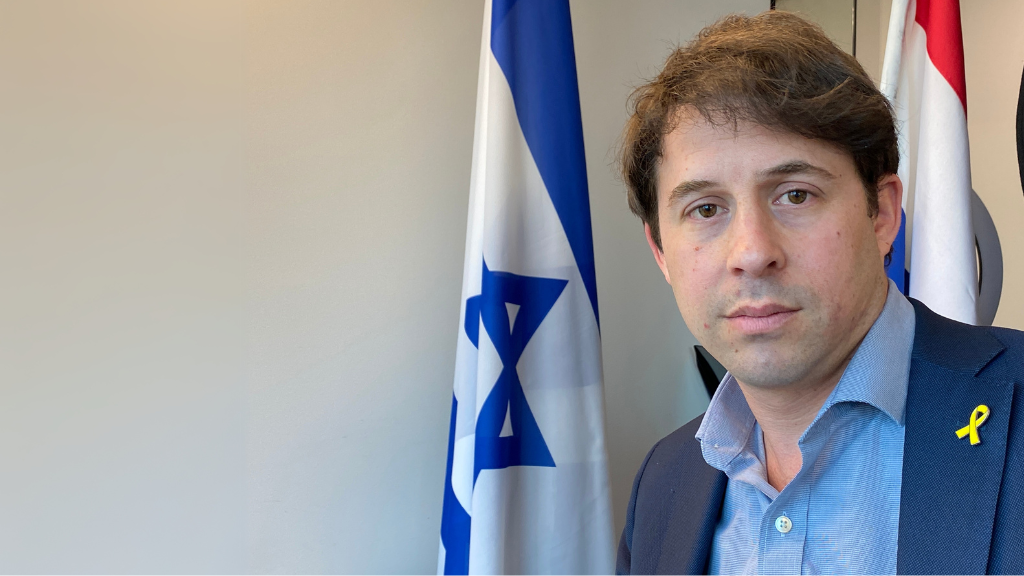‘The real crisis is the hostage crisis’
Anyone who follows the media cannot have overlooked reports of Israel ‘violating the ceasefire in Gaza by targeting civilians’. But how does Israel view the situation? To gain insight, we posed this question to Yaron Wax, Israel’s Deputy Ambassador to the Netherlands.
Mr. Wax, let me start with a direct question: Can we say that the ceasefire – part of Phase 1 of the negotiations between Israel and Hamas – is now over?
Yaron Wax: ‘Yes, it has ended. In fact, it effectively came to a close seventeen days ago when the first phase concluded. Hamas violated the agreement by rearming and withholding food from civilians. As of yesterday, Israel has resumed military operations against Hamas, specifically targeting its infrastructure.’
What actions has Israel taken to prevent the ceasefire from breaking down?
Yaron Wax: ‘We engaged in negotiations led by the American special envoy, Mr. Witkoff. We carefully reviewed and ultimately accepted the U.S. proposals, even though they did not fully align with our preferences. The proposal included a fifty-day extension of the ceasefire and the transfer of several hostages – both living and deceased – to Israel. We agreed to these terms, but Hamas refused to do the same. Hamas is unwilling to release the hostages and is actively rebuilding its military capabilities in the Gaza Strip. In the end, we had no choice but to conclude the negotiations.’
We are now hearing reports of severe distress in Gaza, including shortages of essential resources needed for proper care. From your perspective, what is the current situation in Gaza, as far as it can be determined?
Yaron Wax: ‘We are fully aware that the situation is difficult. People are suffering – both in Israel and in Gaza. That is precisely why we have recently facilitated the entry of 25,000 trucks carrying food and humanitarian aid into Gaza, which is an enormous amount. We are closely monitoring the situation. However, claims of a humanitarian crisis are not supported by facts. What is factual, though, is that Hamas is withholding aid and preventing it from reaching the people who need it most. Instead, Hamas is selling these goods and using the proceeds to rebuild its own power. The real crisis is the hostage crisis. These individuals are the ones enduring truly horrific conditions – being abused and starved. We have all seen the images of released hostages; they are the ones truly suffering.’
What hope is there for the hostages still trapped in Gaza?
Yaron Wax: ‘Now that negotiations have failed to yield results, we hope that increased military pressure will force Hamas to negotiate and ultimately secure the hostages’ release.’
What is needed to end the conflict with Hamas?
Yaron Wax: ‘Our goal is for Hamas to lay down its arms, release the hostages, and for new leadership to emerge in Gaza – without Hamas. You cannot allow a group that openly seeks to kill Jews to remain in power.’
How can the UN, the U.S., and the EU contribute constructively to resolving the conflict with Hamas?
Yaron Wax: ‘Unfortunately, the UN is biased. The reports it publishes are inaccurate, and Hamas is not held accountable. In fact, some UN agencies (like UNRWA) have ties to Hamas. The UN has not fulfilled its responsibilities. The U.S., on the other hand, has been actively and effectively working toward an agreement with Hamas. It would be beneficial if the EU and other countries contributed in a similar manner, applying pressure on Hamas to release the hostages.’





